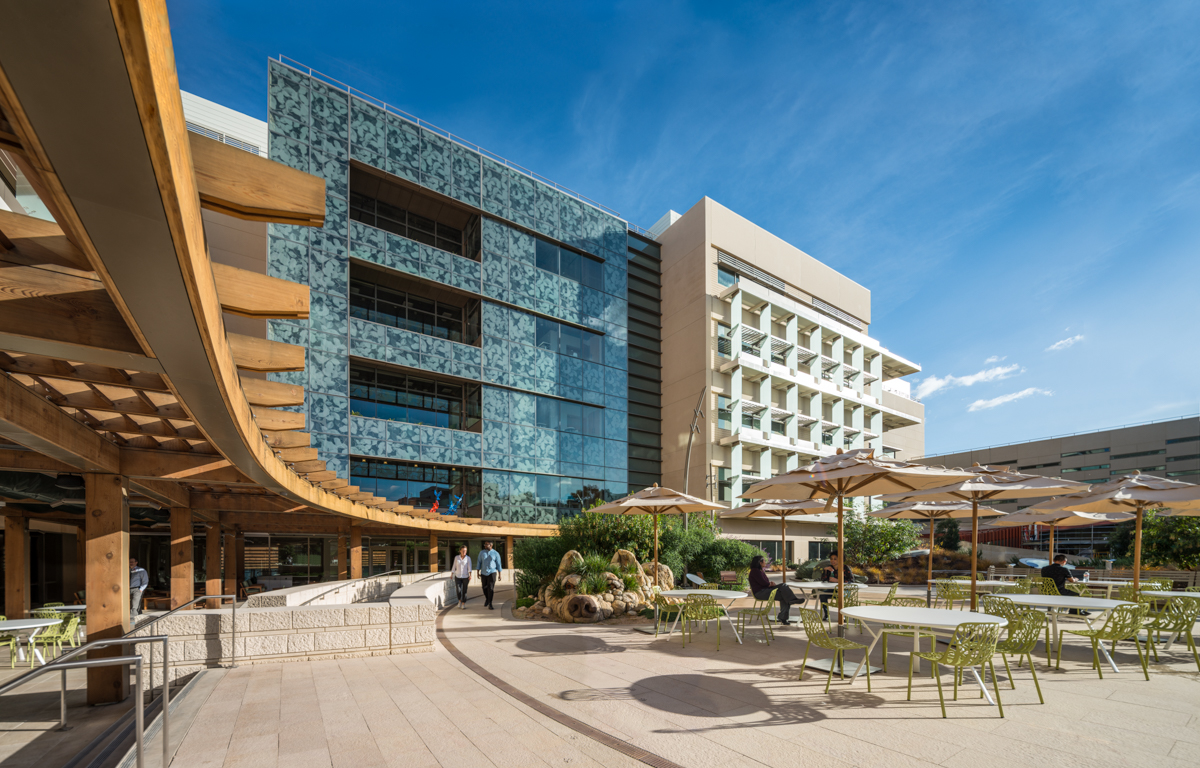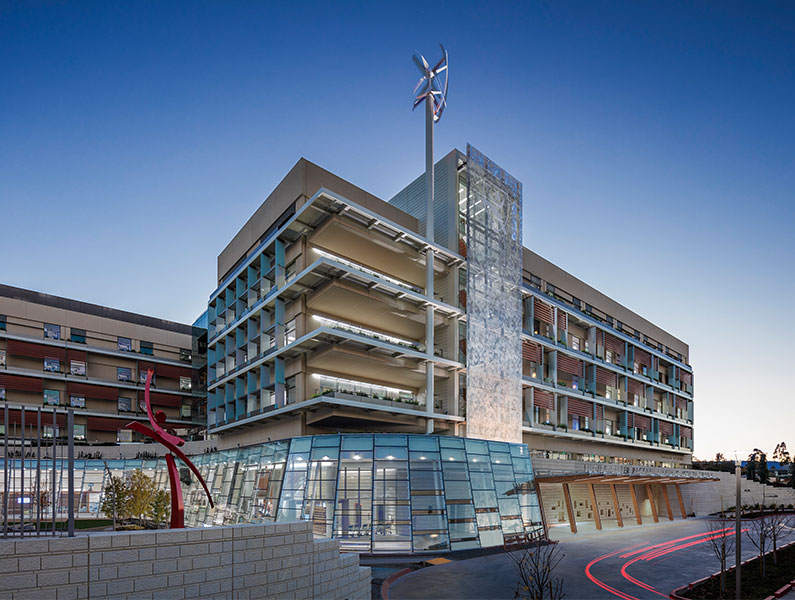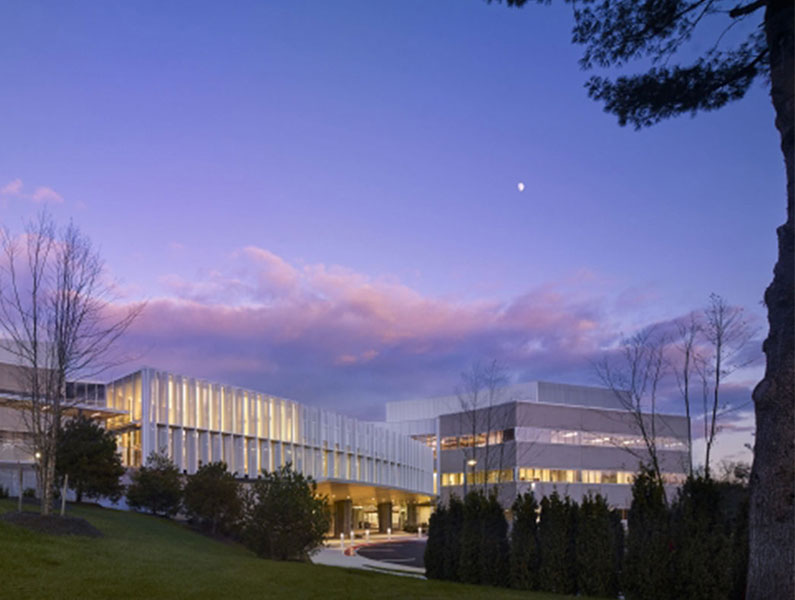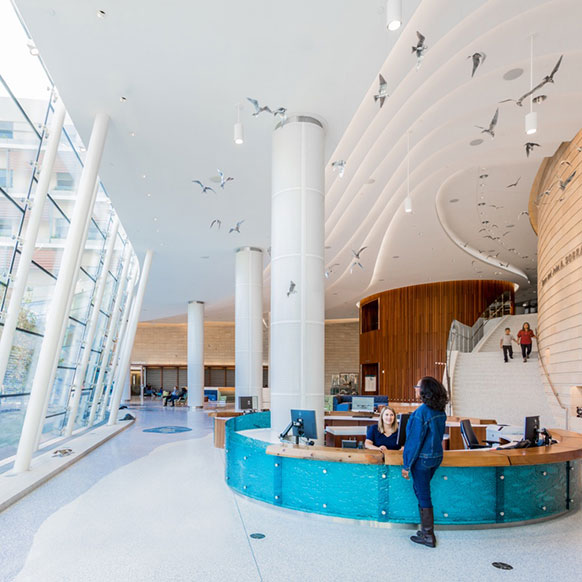Global architecture and design firm Perkins&Will has been honored with two national Healthcare Design Awards by the AIA’s Academy of Architecture for Health (AAH).
The awards, which celebrate “cutting-edge designs that help solve aesthetic, civic, urban, and social problems while also being functional and sustainable,” recognize Lucile Packard Children’s Hospital Stanford in Palo Alto, California and Memorial Sloan Kettering Monmouth in Middletown, New Jersey.
A total of seven projects received an award; Perkins&Will is the only firm to have designed two of those projects.
“It is a tremendous honor to be recognized by the AIA with these prestigious healthcare design awards, but the truth is that we never could have designed such progressive, standard-raising hospitals without the enthusiastic support of our clients,” says Robin Guenther, principal at Perkins&Will and lead architect on both projects. “When our clients are as committed to health and well-being as are Lucile Packard Children’s Hospital Stanford and Memorial Sloan Kettering, anything is possible.”
Lucile Packard Children’s Hospital Stanford
Lucile Packard Children’s Hospital Stanford is an environmentally responsive, technologically innovative, and family-focused children’s healthcare center. Designed by Perkins&Will in close collaboration with patients, families, doctors, and staff, and in conjunction with executive architects HGA and engineers Mazzetti, the facility is the second children’s hospital – and the fifth new-build hospital – in the world to earn LEED Platinum certification for sustainability excellence. The hospital is also a paragon of patient-centered design – something the AIA/AAH jurors noted specifically:
“This children’s hospital focuses on the user’s experience, with a comforting organic richness of spaces, a deep integration with nature with biophilic forms, and clear environmental partnership,” reads the jury statement.
“Our approach was to begin with the design of the patient experience rather than the building itself,” says Rob Goodwin, principal at Perkins&Will and lead designer of the hospital. “We focused on making a child’s understanding of nature an integral part of the healing environment.”
Memorial Sloan Kettering Monmouth
Memorial Sloan Kettering Monmouth is a dramatic transformation of a vacant 1980s suburban office building into a world-class cancer treatment center. The project blends evidence-based design principles, such as views to nature and abundant natural light, with the state-of-the-art cancer care that patients have come to expect from MSK. It is a radical makeover from a dark and outdated corporate setting to a warm, soothing, and even uplifting experience for patients – a memorable design that recalls “a walk through the woods.”
The AIA/AAH jurors were particularly impressed by the research-informed planning of the facility, which ensured that even the center’s 18 infusion therapy rooms received plentiful natural light and faced a window to the outdoors:
“Department areas are planned to create exceptional patient experience as well as effective staff environment – infusion lounge (patient oriented to light, with soft screened glass/staff visualization),” reads the jury statement.
“Both MSK and Perkins&Will wished to create a ‘next generation’ facility that combined signature elements of the MSK brand with enhanced warmth, experiential qualities, and inspiration from the natural, wooded surroundings of the project’s location,” says Carolyn BaRoss, principal at Perkins&Will and lead interior designer of the project.
Recognizing Healthcare Design Leadership
AIA/AAH bestows the Healthcare Design awards annually to recognize the best healthcare building design and healthcare design-oriented research. Jurors sought “projects with a point of view” that “presented their point of view well,” and selected recipients in four categories:
A. Built, less than $25 million in construction cost;
B. Built, more than $25 million in construction cost;
C. Renovations/Remodeled: primarily built within existing hospital or clinical space, or adaptive reuse of an existing building to a healthcare use; and
D. Unbuilt, commissioned for compensation by a client with the authority and intention to build.
Both Lucile Packard Children’s Hospital Stanford and Memorial Sloan Kettering Monmouth earned the award in the “Category B –Built” group.






